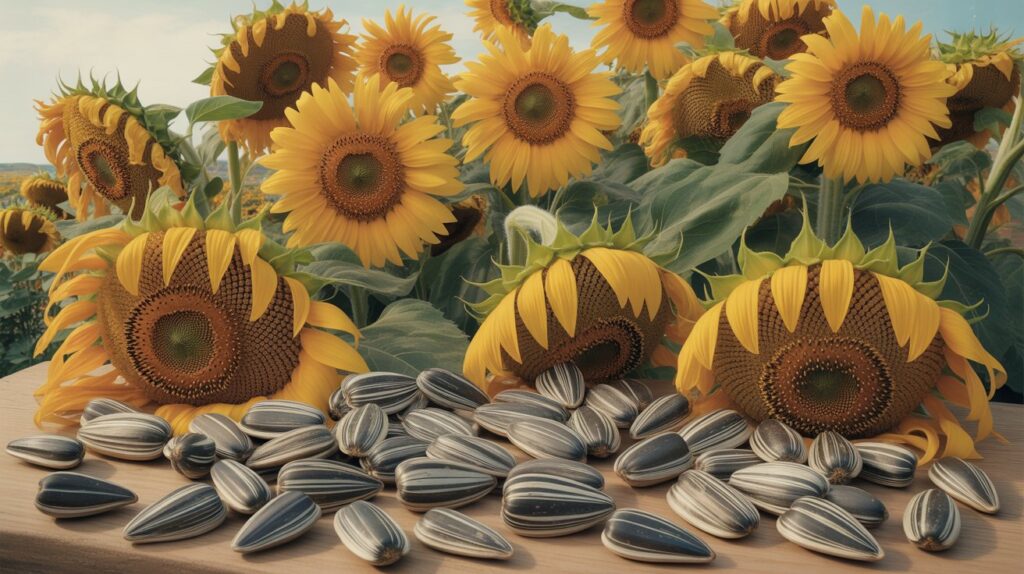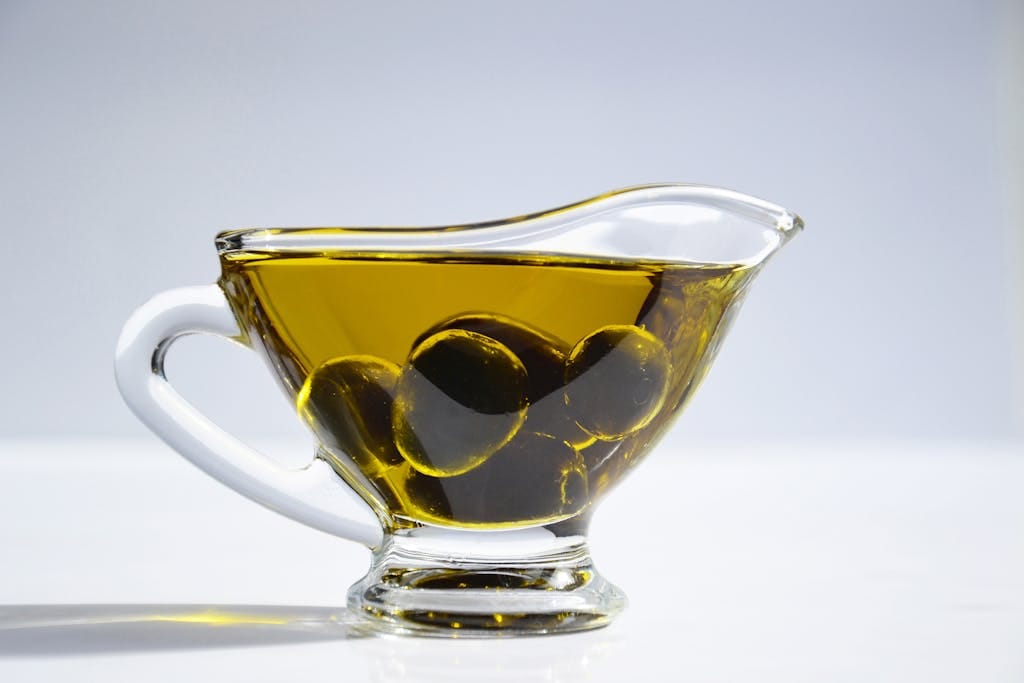Seeded sunflowers seeds are a compact and potent package of nutrition, offering numerous reasons for both gardeners and cooks to enjoy them in the garden or kitchen. Whether you’re looking to cultivate birds-eye view sunflowers in your backyard or you just want to find some new ways to include these nutrient-dense seeds in your diet, this guide gives you everything you need to know about these wonderful little nuggets of power.
Whether you’re learning what makes seeded sunflowers so healthy or how to grow sunflowers from seeds, you’ll know why these golden gems are not only for show, but also to be enjoyed in your diet! The intriguing mystery of sunflower seeds – secrets revealed.
The Power of Nutrition: What Makes Seeded Sunflowers Seeds Unique
Technically speaking, sunflower seeds are the fruits of the sunflower plant (Helianthus annuus), and a single sunflower can contain up to 2,000 seeds! These seeds may be small, but they pack a powerful nutritional punch for your health!
Complete Nutritional Breakdown of Seeded Sunflowers
An ounce (roughly 1/4 cup) of hulled, dry roasted sunflower seeds contains:
Macronutrients:
- Sunflower seeds calories: 165
- Total fat: 14.1 g (healthy fats)
- Protein: 5.5 grams
- Carbohydrates: 6.8 grams
- Fiber: 3.2 grams
Essential Vitamins:
- Vitamin E: 49% of Daily Value
- Niacin (B3) 13% of Daily Value
- Vitamin B6: 13% of the Daily Value
- Folate: 17% of Daily Value
- Pantothenic acid: 40% of the Daily Value
Critical Minerals:
- Selenium: 41% of Daily Value
- Copper: 58% of Daily Value
- Manganese: 26% of Daily Value
- Zinc: 14% of Daily Value
- Magnesium: 9% of Daily Value
- Iron: 6% of Daily Value
Vitamin E and selenium are especially abundant in sunflower seeds, two essential antioxidants that help protect your cells from free radical damage. The seeds also consist of health-promoting plant bioactives, including phenolic acids and flavonoids.
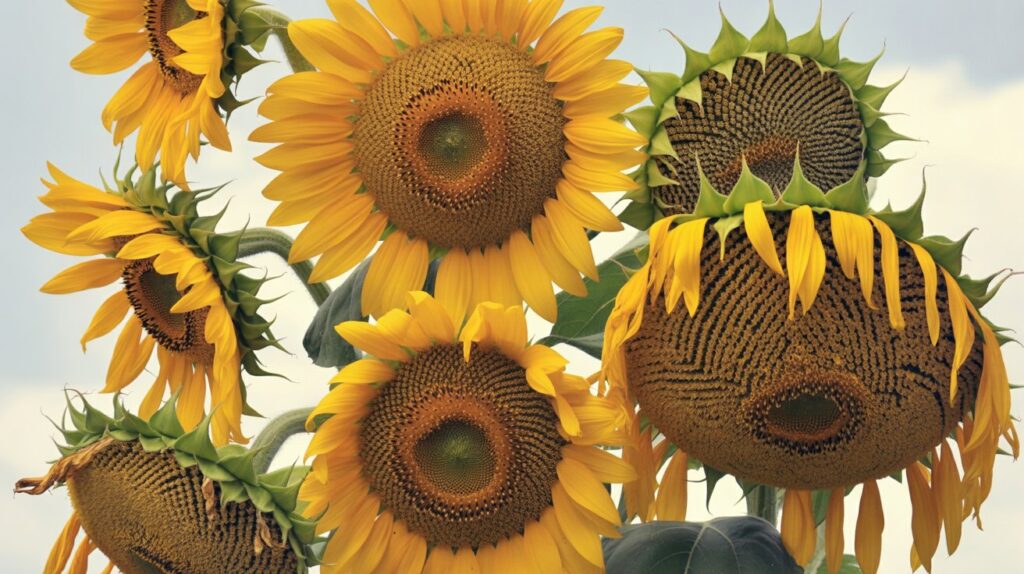
Seeded Sunflowers: Ten Amazing Sunflower Seed Benefits. Not many people speculate about the benefits of sunflower seeds.
Heart Health Support
Eating sunflower seeds regularly may help reduce blood pressure and cholesterol levels, as well as other risk factors that impact cardiovascular health. It’s the combination of healthy fats, magnesium, and plant compounds that helps support heart function and reduce risk factors associated with the heart.
Blood Sugar Regulation
Studies show that after six months, eating 1 ounce of sunflower seeds per day as part of a healthy diet may decrease fasting blood sugar levels by around 10 percent. Not only are sunflower seeds a good source of protein, fiber, and magnesium, but their ability to help control blood sugar and cholesterol makes them one of the most useful seeds.
Antioxidant Protection
The selenium and vitamin E in sunflower seeds aid in protecting the cells of your body from harm brought on by free radicals, which can lead to long-term conditions like heart disease and early aging.
Anti-inflammatory Effects
Sunflower seeds contain flavonoids and other plant compounds, decrease inflammation in the body by scavenging free radicals, meaning C-reactive protein levels may drop, supporting good health.
Immune System Support
Zinc in sunflower seeds is also essential for a strong immune system response, while selenium assists in the antioxidant enzyme function that protects cells from damaging free radicals.
Growing Your Own Seeded Sunflowers
Knowing what I need to grow sunflowers from seed is the key to your own house garden success and a fresh source of healthy seeds for you, your family, and your butterflies.
When to Plant Sunflower Seeds
The ideal time to plant sunflowers is between April and May, but you can plant as late as mid-June. Just remember, late plantings may not flower before autumn comes.
Choosing the Right Seeds
Black oil sunflower seeds are also great for sprouting because they are bred for producing seeds. Such types usually have all-black coated shells, and the oil content is high as well. When buying sunflower seeds for planting, it is also advisable to buy only high-quality seeds from a credible supplier to avoid poor germination rates.
How to Grow Sunflower Seeds in Easy Steps
Soil Preparation:
Begin with nutrient-rich soil in a protected, well-lit area. Incorporate plenty of well-rotted manure or garden compost before planting to improve the soil and add nutrients.
Planting Process:
- Sow seeds individually in 10cm pots of peat-free, multi-purpose compost
- Sow at the same depth as in the pot:
- Water regularly, but avoid overwatering
- Young seedlings can be protected from slugs and snails with copper tape
- How to Plant Sunflowers in Containers from Seed
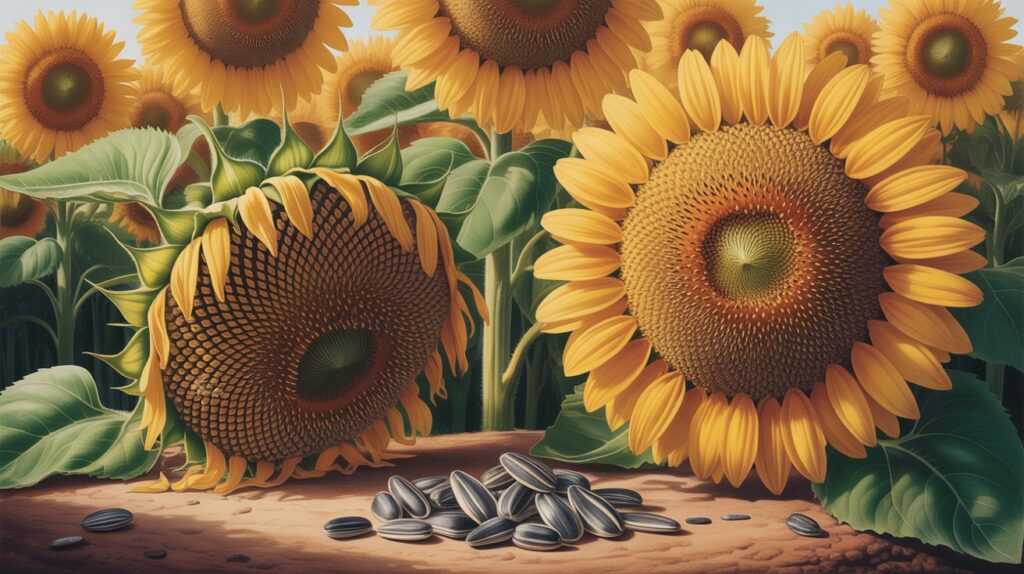
Seeded sunflowers can be grown in pots, but the plants won’t grow as tall as those in the ground. Water regularly during hot weather, and feed every two weeks with nitrogen-rich fertilizer, changing to high-potash fertilizer when plants are in flower.
Container Growing Tips of Seeded Sunflowers:
We call them mega pots, good-draining, large containers
- Stake taller varieties with stout canes to protect from wind.
- Monitor soil moisture levels carefully
- It needs plenty of sun (6+ hours a day)
How to Harvest Seeded Sunflowers Seeds
A mass of seed develops within the sunflower head after flowering. Common sunflowers will usually flower in 11-18 weeks from planting. Harvest seeds when the back of the flower head is brown and the seeds are plump and full-sized.
Eating Sunflower Seeds: Adventures in the Kitchen
Traditional Shell-On Consumption
Sunflower seeds in the shell are typically consumed by cracking the shell with the teeth and spitting out the hull. This classic technique also makes for some eminently snackable seeds; don’t ingest the shells, however, which can cause havoc on your insides.
Creative Things to Do With Shelled Sunflower Seeds
The uses of roasted sunflower seeds are only limited by your imagination.
Options for Snacking:
Coating for Fish (Ground seeds)
Taste great in all sorts of baked goods and casseroles
Specialty Preparations:
Germinating sunflower seeds increases their phytosterol content
- Make sunflower seed’s butter as an alternative to nuts
- Process into flour substitute for gluten-free baking
- Exploring Sunflower Seeds’ Flavors
Advanced processing methods have developed many different types of sunflower seeds beyond the old, common variety of salted sunflower seeds. Barbecue, cinnamon toast, parmesan pepper, and ranch flavors are just a few of the favourites.
Storage and Safety Considerations of Seeded Sunflowers Seeds
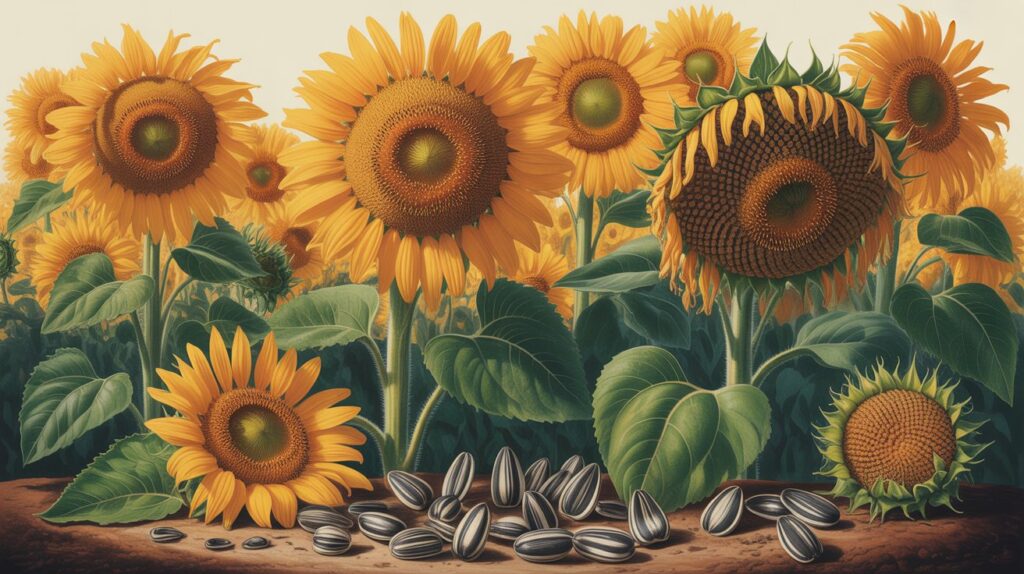
Do Sunflower Seeds Expire?
Yes, sunflower seeds go bad. Kept in air-tight containers in a very cool, dry place, they will stay nice and fresh. Raw seeds usually keep for 2-3 months at room temperature; roasted sunflower seeds can last a little shorter due to the oxidation of the oil.
Dietary Considerations
Are sunflower seeds keto? Yes, sunflower seeds can be introduced into ketogenic meal plans due to their high fat and moderate protein content, along with a relatively low net carb content. But because they’re calorie-dense, portion size still matters.
How to Roast Sunflower Seeds at Home
How to Roast Sunflower Seeds With the sun and these seeds:
- De-seed the flower head
- Rinse and remove any debris
- Soak with salt water water 8-10 hours (if desired)
- Drain and pat dry
- Roast 20-30 minutes at 300°F, stirring occasionally.cgColor(27, 56, 102,.5)`.
- Season while still warm for optimal flavor penetration
Embracing the Seeded Sunflowers Seed Lifestyle
Seeded Sunflowers Seeds: All Natural as Nature itself. FOR THE DIETERS: Surely, those seeds keep you skinny since they don’t pack enough to make you fat. FOR THE ORGANIC GROWERS: Seeds contain no artificial flavors or preservatives and grow more plant options in pots and planters. Every gardener knows that sunflowers are the ideal and natural way to attract friendly friends to their yard. Whether you’re cultivating towering sunflowers with your kids, trying to source and cook with different types of black sunflower seeds, or savoring new and exciting ways to work these nutrition powerhouses into your diet, you’re making foods that have nourished communities for generations your own.
With their abundance of vitamin E and selenium, and their versatility in both sweet and savoury applications, sunflower seeds can be used for health-conscious individuals. Add a handful to your morning yogurt for a small start, or go all in and reserve some garden space to grow your own seeded sunflowers.
The process from seed starting in the spring, through harvest, and onto the table is so gratifying, connecting you again with the source of your food and the healthy way to feed your family. Whether you like them in the shell, ground into a butter, or even if you’re sprouting seeded sunflowers seeds for a superfood meal topper, these mighty seeds hold a special spot in a health-conscious kitchen.

